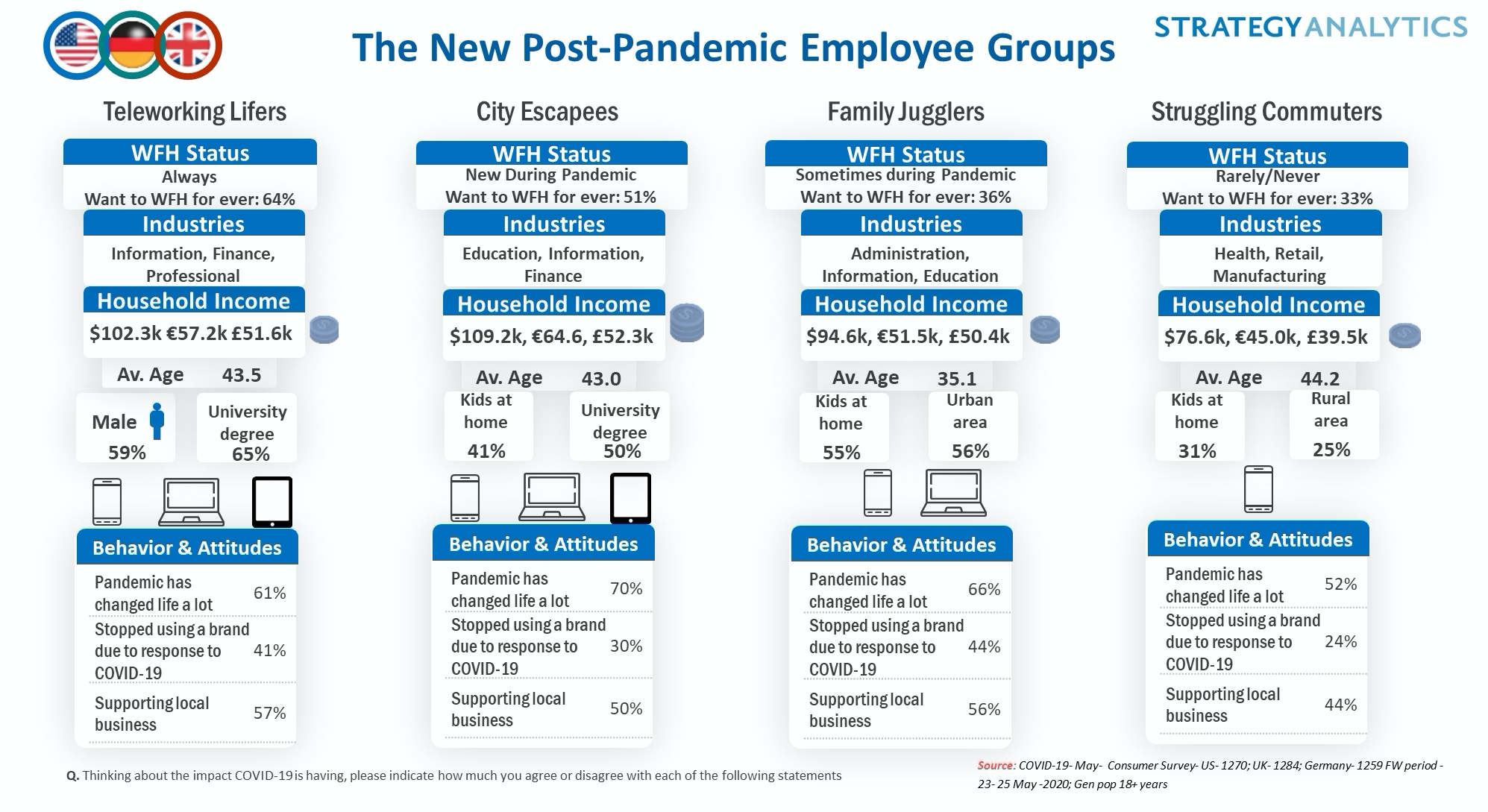Widespread home-based working will result in the elimination of billions of commuter journeys and a decline in office-based working environments of 22%, according to a new study by Strategy Analytics. The analysis is based on the emergence of four new employee groups in the post-pandemic employment landscape:
- City Escapees account for 24% of workers: they love working from home (WFH) and half want to continue for ever
- Family Jugglers account for 30% of workers and are less keen on WFH
- Struggling Commuters account for 37% and are lower income employees in retailing, health and manufacturing who are unlikely to WFH in future
- Teleworking Lifers have always been WFH and account for 9% of workers.
The complimentary report, After the Pandemic: Scaling the Impact of Sustained Working from Home Behaviors, is based on 9000 online interviews across the US, Germany and the UK carried out in March, April and May.
In its Base forecast scenario, the report predicts that the number of people working from home in the longer term could increase by up to 300% relative to pre-pandemic levels. A shift of this magnitude would have major implications for transport and other sectors, with billions of commuting journeys eliminated every year.
Many employers are reviewing their WFH policies but the research makes it clear that a significant proportion of employees, particularly those previously based in offices, would be happy to continue working from home permanently. WFH does present problems of isolation and difficulties in communications for some employees, but these issues are not considered as important as the benefits.
“Employees have spoken – the ball is now in employers’ court,” says David Mercer, VP and Principal Analyst and the report’s author. “During the pandemic people have enjoyed not commuting more than any other aspect of working from home; many would be delighted to continue if their employer allowed it.”
The report identifies a number of additional topics which require further exploration, including:
- To what extent do employees desire or need to be in the office regularly for social interaction?
- Which products and services will help to alleviate the major WFH concern – isolation – and which business models will offer the greatest returns?
- To what extent will increased WFH accelerate changes in mobility behaviour such as declining or increasing personal vehicle ownership and reduced public transport usage?



